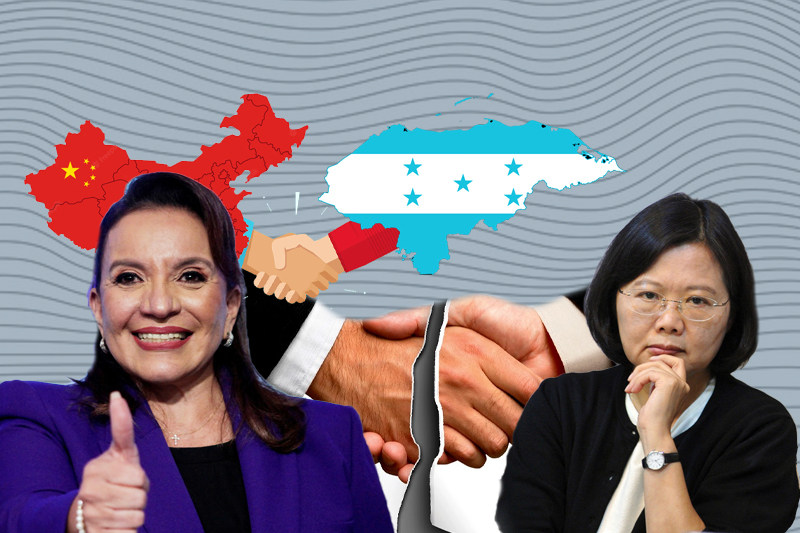
Greater Geopolitical Concerns Are Raised By Honduras Abandoning Taiwan
Another sign of the expansion of Chinese influence in Latin America is Honduras’ decision to break diplomatic relations with Taiwan in favor of China. Ally Honduras seeks diplomatic switch to China, Taiwan isolation deepens.
The Asian superpower invested billions of dollars in infrastructure and investment projects throughout the region for many years. That spending has now paid off as geopolitical tensions between China and the Biden administration linger.
China, which last week mediated an agreement to reestablish diplomatic relations between Iran and Saudi Arabia, scored a second foreign policy victory with Honduras’ choice.
Only 13 nations will now recognize Taiwan. However, some of the last few in Latin America, including Paraguay and Guatemala, pledged on Wednesday to continue supporting Taiwan.
Enrique Reina, Honduras’ minister of foreign affairs, said on Wednesday that although Hondurans “are grateful” for their previous relationship with Taiwan, their economic ties to China ultimately led their government to sever diplomatic ties.
These choices are political. This is how the world has been going, Reina said. “We acknowledge that it is a difficult choice, but Honduras’ foreign policy should aim to advance the interests of the populace. This move, in our opinion, will be advantageous for the nation.
The Central American country turns its back on Taiwan in the same way that El Salvador, Nicaragua, Panama, and the Dominican Republic have done. The announcement made by Honduras on Tuesday was a setback for the Biden administration, which had been making rather fruitless attempts to convince the region’s nations to stick with Taiwan. While Chinese President Xi Jinping has insisted that the island is firmly under Chinese control, Taiwan, a close ally of the United States, has pushed for sovereignty.
In that regard, Tuesday’s announcement also serves as a metaphor for how the American government is “losing its grasp on” Latin America, according to David Castrillon-Kerrigan, a research professor at Colombia’s Externado University who specializes in Chinese-related issues.
Keep Reading
For nations like Honduras, failing to recognize the Beijing government meant passing up opportunities, according to Castrillon-Kerrigan. Especially on the economic front, but also in international relations, politics, and cultural matters, the United States “is unquestionably losing influence.”
It has reduced the number of allies on the island. The Biden administration “must understand and respect,” according to Reina, the needs and choices of Honduras.
However, some nations, including Paraguay and Guatemala, persisted in their support of Taiwan. The government “recognizes Taiwan as an independent nation that shares democratic values,” according to Guatemalan officials.
China has slowly established itself in Latin America over the past 20 years by pouring money into the region and funding significant infrastructure, energy, and space projects.
According to the United States Institute of Peace, the Chinese invested more than $130 billion in Latin America between 2005 and 2020. The amount of trade between China and the region has increased dramatically and is predicted to exceed $700 billion by 2035.
China and an increasing number of allies are becoming more powerful as a result of that investment.
For example, the Chinese company Sinohydro built a hydroelectric dam project in central Honduras with funding from the Chinese government totaling about $300 million. The American government, meanwhile, has not intervened with projects of comparable size in many other nations.
Although many see the investment as a good move for countries that frequently struggle to raise money for development, others, like June Teufel, professor of Political Science at the University of Miami, are concerned about the potential long-term repercussions of rising Chinese power.
According to Teufel, China uses this new power as “a diplomatic weapon.”
The mounting debt in developing countries has harmed Chinese investment in many countries throughout Africa and Latin America. According to Teufel, Chinese companies are frequently the only ones that can repair infrastructure projects, which results in a higher cost.
Teufel compared it to a drug dealer telling a potential customer that the first dose is free. It results in another nation abandoning Taiwan, something that it has long desired to do, depriving Taiwan of all of its remaining allies.




